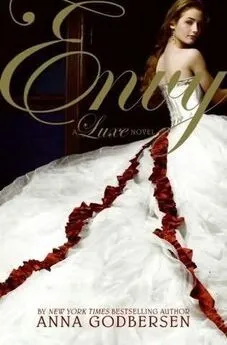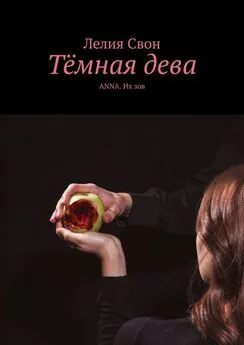Anna Godbersen - Envy
- Название:Envy
- Автор:
- Жанр:
- Издательство:HarperCollins
- Год:2009
- ISBN:нет данных
- Рейтинг:
- Избранное:Добавить в избранное
-
Отзывы:
-
Ваша оценка:
Anna Godbersen - Envy краткое содержание
Jealous whispers.
Old rivalries.
New betrayals.
Two months after Elizabeth Holland's dramatic homecoming, Manhattan eagerly awaits her return to the pinnacle of society. When Elizabeth refuses to rejoin her sister Diana's side, however, those watching New York's favorite family begin to suspect that all is not as it seems behind the stately doors of No. 17 Gramercy Park South.
Farther uptown, Henry and Penelope Schoonmaker are the city's most celebrated couple. But despite the glittering diamond ring on Penelope's finger, the newlyweds share little more than scorn for each other. And while the newspapers call Penelope's social-climbing best friend, Carolina Broad, an heiress, her fortune — and her fame — are anything but secure, especially now that one of society's darlings is slipping tales to the eager press.
In this next thrilling installment of Anna Godbersen's bestselling Luxe series, Manhattan's most envied residents appear to have everything they desire: Wealth. Beauty. Happiness. But sometimes the most practiced smiles hide the most scandalous secrets. .
Envy - читать онлайн бесплатно полную версию (весь текст целиком)
Интервал:
Закладка:
Mrs. Tilt’s mouth opened up like a capital O, but she was apparently struck dumb, for she said nothing more as Carolina curtsied, took Leland’s arm, and descended the stairs at the end of the hall. They paused in the lobby, where Carolina gestured for Mrs. Carr’s otter coat, and then she was again out in the cold.
As they waited in silence for a cab to come clomping down the street, Carolina tried desperately to think of something to say or do that would ensure her seeing Leland again. But she had no permanent address, save the one that she had just exited, and no planned social engagements where she might hope to meet him again soon. There was the same strained silence as a cab finally came to a halt and Leland helped her up to the seat.
“I leave Friday, and am afraid I’ll have no time to see you before I go. But you’ll let me know you’re feeling better?”
Carolina moved her head up and down mechanically.
“Send me a telegram at least,” he said. He grabbed for her hand and held it, tightly, in his own.
“I will,” she promised as she reluctantly released her grip. “Goodbye, Mr. Bouchard.”
Then there was the sound of a whip and the horse moved forward into the night. Carolina closed her eyes, and tried to imagine that she was still with Leland and not wrapped up in a stolen coat riding in a cab to which she could give no directions home.
Thirty Six
Mr. William Schoonmaker, whose political ambitions are well known, has been in Albany all week, meeting with the governor and shoring up allies, now that he has joined the Family Progress Party. By all accounts, the would-be candidate will return to Manhattan today….
— FROM THE NEW YORK TIMES, THURSDAY, MARCH 1, 1900
“WOULD YOU LIKE A DRINK, SIR?”
“No.”
Henry kept his chin down and his gaze steady as he walked past the waiter and into the second-floor drawing room where his stepmother did much of her entertaining. Louis XIV furniture, which had been oiled that morning between breakfast and luncheon, was arranged with affected carelessness across the deep purple Hamadan carpet. A few of the men and women who fit the elder Mrs. Schoonmaker’s idea of “right people” were now talking in imperious tones over very little. They perched on the corners of divans and reclined in bergère chairs, sipping only occasionally from paper-thin china cups. The late-afternoon light streamed through the lace undercurtains, and one could be sure that on the other side of the glass the parade of carriages down the avenue was moving briskly along.
The skin of Henry’s jaw was freshly shaved and tender. He did feel a twinge of regret that he had turned down the drink, for that particular waiter had been attentive to his empty glasses for many years, perhaps over the objections of Henry’s father, and he felt a little disloyal about the rejection. But he was trying to keep himself fit and clear. He had been trying all week, as he awaited the return of the elder Schoonmaker from Albany. He had gone over all the arguments in his head, and he felt ready to present his wish to leave Penelope in a rational and straightforward manner and then let the old man do his worst. And anyway, there would be other drinks and other glasses — with Diana, he hoped, in some wonderfully unrecognizable future.
His gaze darted across the room, but he didn’t see his father anywhere, and eventually he focused on the blue-eyed brunette with the long neck who was sitting on an oval-backed, black velvet settee in a day dress of emerald green satin. Beside her was his stepmother, her blond hair done up and her cheeks pink with all the compliments she liked to receive when there were guests. Both women looked toward Henry, and then Isabelle laughed and turned away.
Penelope, however, went on watching Henry as he moved through the little tables and marble statuary that filled the room. He passed Adelaide Wetmore and Lydia Vreewold, ensconced in conversation, and the painter Lispenard Bradley, who appeared to be waiting for a vacancy beside Mrs. Schoonmaker. Once Henry had drawn close, Penelope turned a bright, counterfeit smile back on him.
“Have you missed me terribly?” she said loud enough for several known gossips to hear.
The bodice of Penelope’s dress was braided and layered, and the effect was something like armor. Despite the abundant fabric, there was an angular quality to it. There seemed to be nothing capable of movement underneath the fitted satin, and Henry wondered not for the first time if her blood ran red or black. The answer didn’t matter to him anymore.
“No,” he said finally.
Penelope’s long black lashes batted back just an eighth of an inch. She pressed her oversize lips together and let the perfect oval of her face assume an implacable expression. If she felt embarrassment, she was trying awfully hard to make sure no one else noticed it.
“I was looking for my father. Is he here, Isabelle?”
Isabelle, who had been engaged in a silent exchange with Bradley, showed Henry an innocent face that betrayed just how carefully she had been monitoring the words between her stepson and daughter-in-law. “No,” she said eventually. “He went to the club, but we expect him for dinner at the Hayeses’ tonight. You can talk to him there, later. But do stay now, Henry — you are never any help when we have good people over.”
The glow coming through the windows was fading slowly to evening light, and the colors that women wore during the day began to appear garish. Already Isabelle was thinking of the next gown she would wear, he knew, although, as usual, she would not want to part with those who had kept her company during the day. She collected furniture, but somewhat indifferently — her real passion was for collecting people.
“I don’t feel so much like socializing now,” Henry replied curtly. “There’s something that I need to discuss with the old man — it’s important, and I won’t be much fun until we’ve had our talk.”
He nodded his goodbye, and moved to leave the drawing room. He’d nearly reached the door when he realized that his wife had matched his every step. All the heads in the room twisted so as to better observe her, and when Henry fully comprehended that the attention of the assembled was on them, he paused and tried to appear a little normal.
“What is it you want to talk to your father about?” she asked in a low voice.
Henry’s eyes went everywhere — to alabaster torchères and angels carved out of wood, to the postures of people who were trying not to seem to spy, to anything but her. “I’d really rather not—”
“If it’s about me, I hope you’d have the courage to say it to my face.”
Henry’s hands moved awkwardly across his black jacket and he sighed.
Penelope’s eyes brightened with a prideful gleam. “Here it is,” she replied, extending her neck so that her head came closer to his. Though her tone was sweet, there was a challenge in it, too.
The Schoonmaker guests had gone back to their little talks and were at least keeping up the illusion that they had no interest in the newlyweds by the mahogany doorframe. He had told her once before: He didn’t know why he was finding it so difficult to muster the words now. Maybe she seemed a more pitiable figure to him after everything.
“Is this about that nonsense you were babbling about in Florida?” She laughed, as at a very urbane joke. There must have been something in his countenance that affirmed this, because she went on: “What would people say, Henry. It would be so awfully irregular.” She brought a gloved hand up to cover her mouth and laughed again, this time in a more quiet, simmering way. “Would you like to know what I think? I think you don’t have the guts to tell your father.”
Henry took a hoarse breath. There was a taunting quality in her voice, and it made him pity her somewhat less. He held her gaze, and pronounced his next statement with great care. “I’m going to tell him tonight.”
Only now did Penelope’s smile begin to falter, although she held it enough that her sharp cheekbones emerged against her skin to catch the last of the outside light.
“You wouldn’t.” Her voice had fallen to a hiss, and she stepped forward as though she might find a way to physically prevent him from altering her plans.
“Yes.” Now that he’d said this much aloud, he felt as though the conversation with his father was a foregone conclusion. Henry thought maybe a parade down Fifth Avenue should be planned to honor his bravery, and he was already almost experiencing the thrill of falling confetti. “I would.”
There were many more things he might have gone on to say — about how she deserved it, or that she was cold and venal, or how flimsy his interest in her had ever been — but he knew somehow that the right thing to do at that moment was to keep quiet. There was no need to prolong the war when his exit strategy was so perfectly clear.
He nodded a polite goodbye, turned on his heel, and left the room, his blood charging through his veins and his thoughts soaring to a triumphal tune.
Thirty Seven
It is a truth universally acknowledged that there will always be a gentleman to dance with, except at just the moment when you require one most.
— MAEVE DE JONG, LOVE AND OTHER FOLLIES OF THE GREAT FAMILIES OF OLD NEW YORK
IT WAS THE DAY FOLLOWING ELIZABETH’S CONFESSION to her mother, and by afternoon she was struggling for her old composure. The guilt and fear were still tremblingly there, not to mention the nausea and fatigue, but she tried hard for some steadiness in her fingers as she did the row of tiny buttons that ran along her sleeve from her wrist to the inside of her elbow. She arranged her hair high above her forehead, the blond strands at the nape rising upward from her tall black collar. Already you could see where her small body was growing larger — but not dressed, not with the thick wine-colored skirt hugging her waist and falling down past her toes. There was some time yet, although the idea of how little made her feel sick all over again. Will had died two months ago now — her predicament would be visible quite soon.
“Claire,” she said as she descended the main stair into the foyer. The red-haired maid looked up at her tiredly from her work. She paused in the dark wood — paneled space, but did not release the broom from her hand as Elizabeth placed her foot on the final step. “I am going to call on an old friend.”
If Claire noted something unusual about this — for it had been months since Elizabeth had done anything of the kind — she did not show it on her face. She rested the broom against the wall, wiped her hands against each other, and went to the cloakroom, which was built under the stairs. As she waited, Elizabeth gazed out through the glass in the doorframe. She could see the slight movement of the trees in the park, but no passersby, and realized that it must be very cold outside. Over the past months, with the Holland household staff so reduced, Elizabeth had taken to fetching and putting on her own coats, but she resisted that impulse when Claire reemerged with the brown tartan cape. She waited to be helped into both arms and have the large cloth buttons done up in the chest. Then she met the maid’s eyes, but only for a moment, and only with the most cursory of smiles.
She had recently become conscious of the possibility that Claire was behind the revelation of Diana’s indiscretion with Henry Schoonmaker, and though she had always trusted the girl implicitly she found herself acting guarded around her now and pinning every stray piece of gossip one heard about the Hollands on her. She certainly didn’t want her to get wind of any brewing scandals.
Читать дальшеИнтервал:
Закладка:




![Anna Jones - По истечении срока годности – забыть [СИ]](/books/1149886/anna-jones-po-istechenii-sroka-godnosti-zabyt-s.webp)





